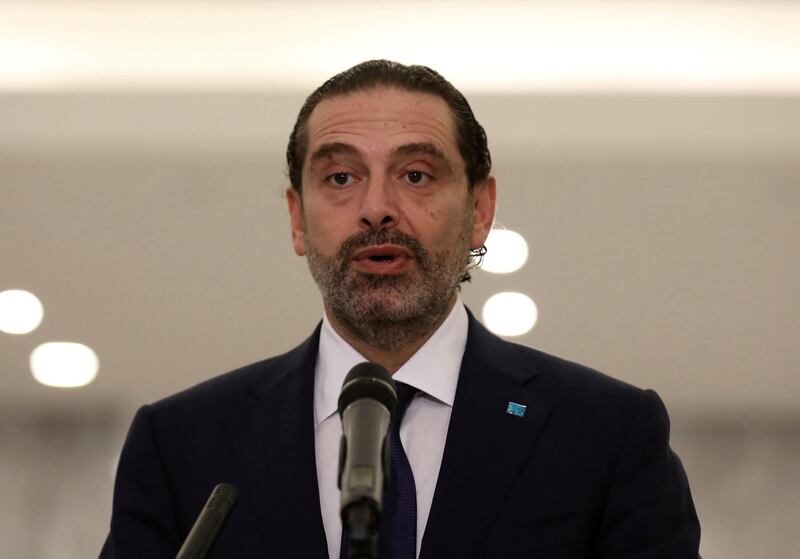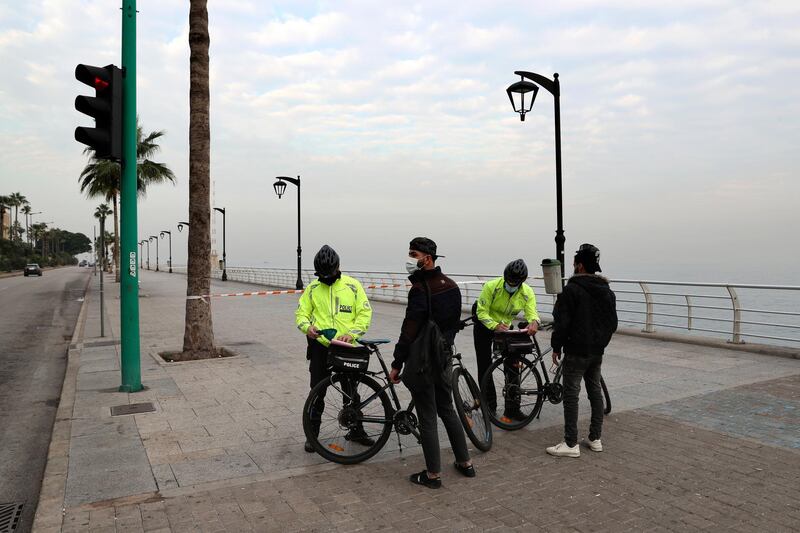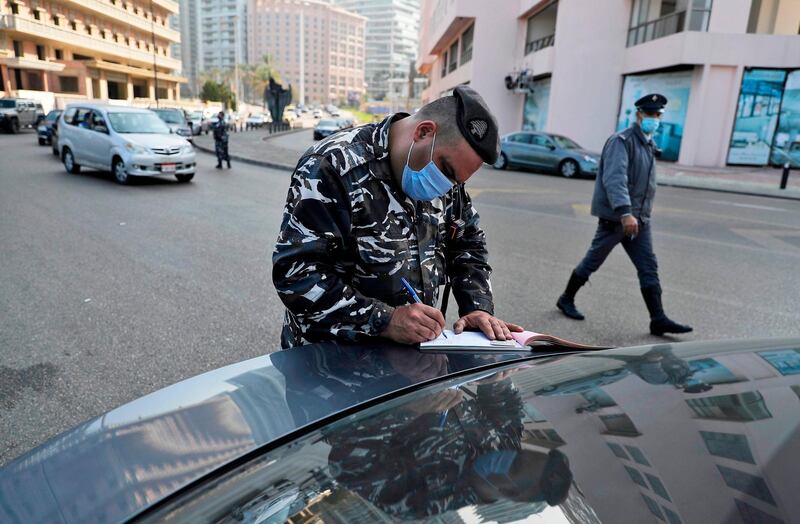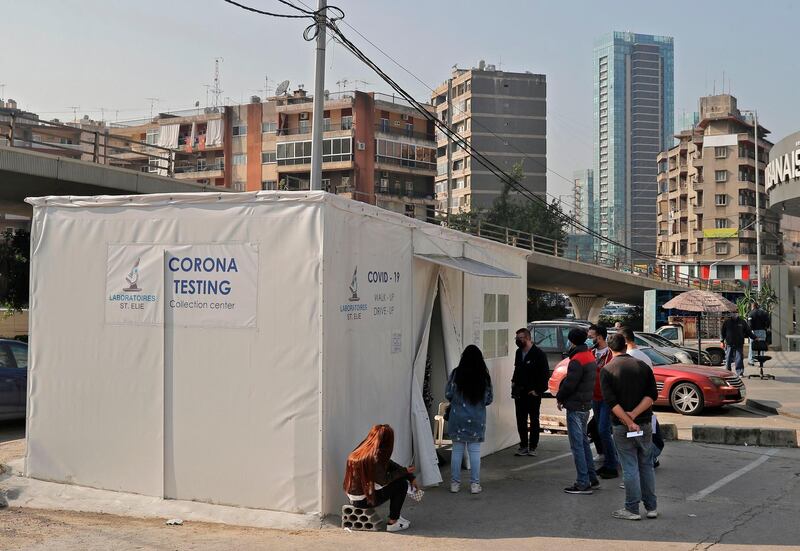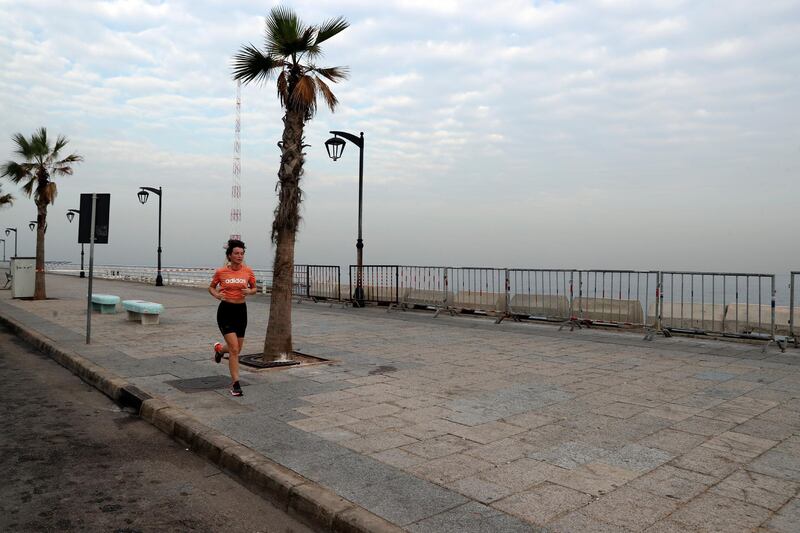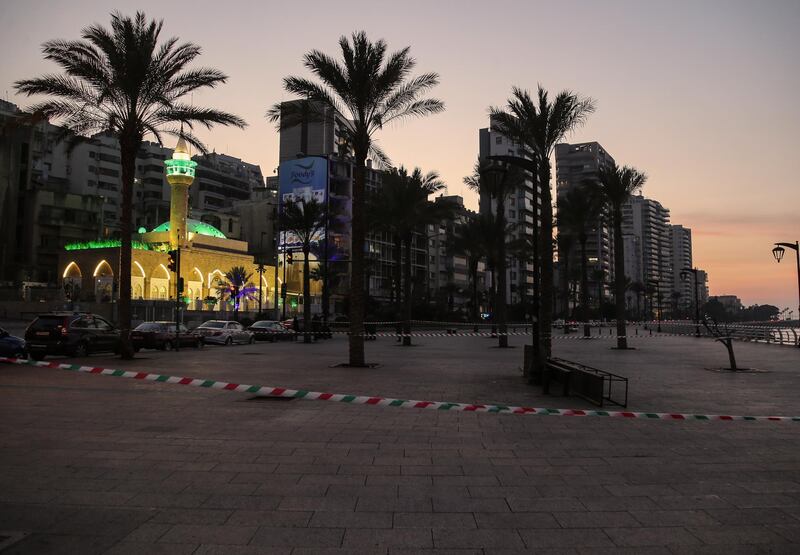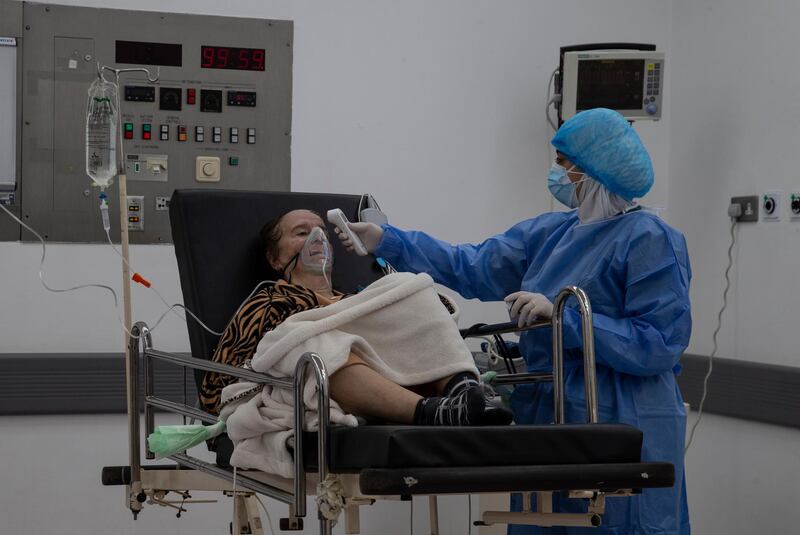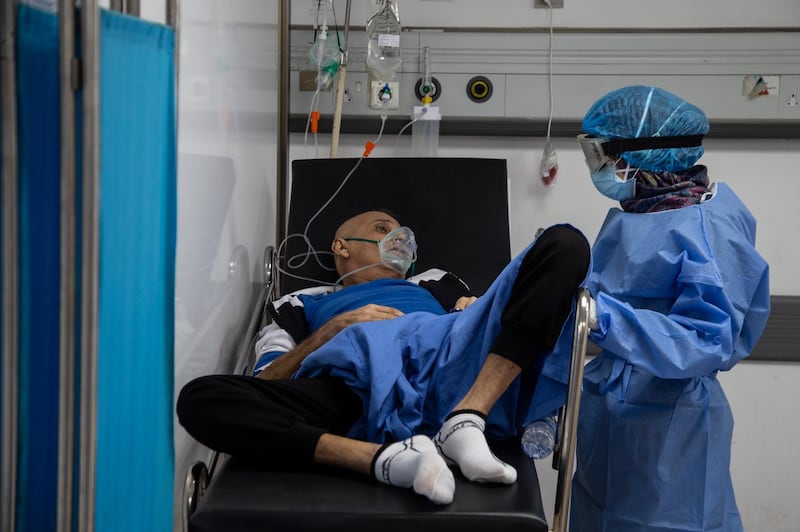Lebanon’s political crisis is deepening amid a widening rift between the president and the prime minister-designate over the formation of a new Cabinet five months after a deadly explosion in Beirut forced the resignation of the current caretaker government.
President Michel Aoun on Monday ruled out reports of an imminent agreement over the composition of the upcoming Cabinet, accusing Prime Minister-designate Saad Hariri of making false statements.
“There’s no government formation,” Mr Aoun told caretaker Prime Minister Hassan Diab when asked about progress in the Cabinet formation talks during their meeting at the presidential palace.
“He [Hariri] says we gave him a paper but he’s lying. He made statements full of lies. And now look how long he’s been away,” Mr Aoun added in a 26-second-long video circulated by local media following Monday’s meeting.
The president was referring to the stalled Cabinet negotiations and Mr Hariri’s latest travels including his recent visit to Turkey during which he met with President Recep Tayyip Erdogan.
Mr Hariri left Lebanon days before the New Year holidays and almost two weeks after putting forward a Cabinet lineup of 18 “non-partisan” experts that failed to win the approval of the president. Mr Aoun demanded the re-allocation of key portfolios among political groups to be represented in the government "based on clear principles." His counterproposal, however, lacked a list of candidates and only touched on the distribution of portfolios, a source familiar with the talks told The National at the time.
The president’s latest remarks come a day after his son-in-law and leader of the largest parliamentary bloc, MP Gebran Bassil said Hariri could not be trusted to dictate a government tasked with implementing urgent reforms in a bid to secure international financial support to help Lebanon weather its economic and financial crisis.
Mr Bassil, a key ally of Hezbollah and the target of recent corruption-related US sanctions, accused the prime minister-designate of sidelining the country’s highest ranking Christian official in the Cabinet formation process.
According to the constitution, Mr Aoun’s signature on the Cabinet formation decree is needed before Mr Hariri can seek a vote of confidence in Parliament where Hezbollah and its allies hold a majority.
“Why is Saad Hariri assuming that he can nominate Christian ministers on behalf of the president and Christians?” Mr Bassil asked in a televised speech on Sunday. He accused Mr Hariri of denying the president the right to name Christian ministers while consulting with the country’s other major political groups over the Cabinet makeup, including the Iranian-backed armed group Hezbollah. Hezbollah has refused to hand Mr Hariri its list of candidates before the latter reaches an agreement with the president.
The Cabinet formation process has been further complicated by tensions surrounding the investigation into the massive port explosion that killed over 200 people and damaged large parts of the capital in August.
Fadi Sawan, the judge leading the investigation into the explosion, had charged Mr Diab and three other former ministers, including two officials with close ties to Parliament Speaker Nabih Berri, with negligence. He later suspended the investigation pending a ruling by the Supreme Court in Beirut on a request to transfer the case to another investigative judge. The court on Monday gave the green light to proceed with the investigation but has yet to rule on the transfer request.
Mr Hariri has called the indictment an “attack” on the post of premier, a position reserved for Sunni Muslims under Lebanon's power-sharing system, while Mr Berri’s deputy said Mr Sawan’s case lacked evidence.
The indicted officials have snubbed Mr Sawan’s summons, arguing that the constitution shielded members of parliament and ministers from prosecution for decisions made in their line of work.
The political deadlock has blocked the implementation of reforms that the international community is demanding before providing Lebanon with financial aid to contain its worse economic and financial crisis since the end of the country’s 15-year civil war in the early 90’s.
Since the crisis unfolded in late 2019, the national currency has lost over 80 per cent of its market value against the dollar while the World Bank has warned that over half of Lebanon’s population will fall into poverty by 2021 barring any reforms to revive the economy and fight corruption.
